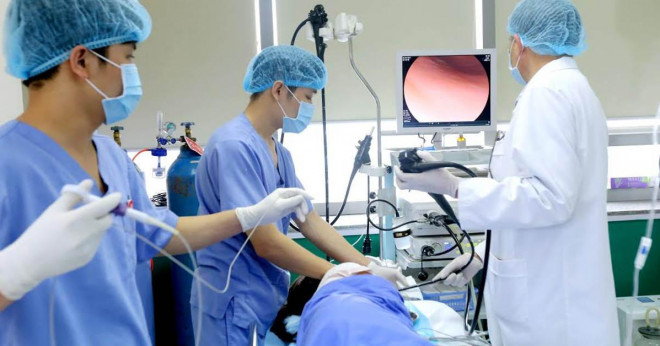Can gastroesophageal reflux disease lead to esophageal cancer? -Life Health
Gastroesophageal reflux disease is the occasional or frequent backflow of substances from the stomach into the esophagus. This is a chronic disorder that worries many patients that it may lead to esophageal cancer.
1.Record the rate of esophageal cancer related to gastroesophageal reflux
To answer these questions, studies show that the risk factor for esophageal cancer is that people have long-term esophageal disease with an increased risk of esophageal cancer. The organization at the bottom of the esophagus can be necrotic if gastric juice is frequently refluxed into the esophagus, which is common in gastroesophageal reflux disease. Cells in the esophagus change greatly and begin to resemble those in the stomach, which is a precancerous lesion that can develop into adenocarcinoma of the esophagus.
And we also know, the simple complications of gastroesophageal reflux disease will affect the patient’s quality of life. Complications that cause reflux esophagitis can lead to esophageal stricture, esophageal bleeding, or, worse, esophageal perforation.
And so gastroesophageal reflux can lead to esophageal cancer, although the rate is not high.
When the patient has a complication called Barrett’s esophagus without any recorded metaplasia, dysplasia, dysplasia, the cancer rate is 0.5%.
However, if gastroesophageal reflux disease has Barrett’s complications but is recorded with dysplasia, dysplasia, and metaplasia, the risk of cancer increases to 10%, even 40%.
Gastroesophageal reflux often has a very high recurrence rate, about 70% of patients have a relapse within a year.
2. Reflux increases the risk of esophageal cancer
Explaining this problem, scientists think that when working properly, the stomach secretes strong acids and enzymes to help digest food. In some people, acid can escape from the stomach and back up into the lower esophagus, causing gastroesophageal reflux disease (GERD). Most people with reflux experience symptoms such as heartburn, heat, or pain in the center of the chest. However, in some patients, reflux does not cause any symptoms at all.
People with reflux have an increased risk of esophageal cancer, especially adenocarcinoma. Although GERD is very common, fortunately most people with it do not develop esophageal cancer. Reflux can also cause Barrett’s esophagus, which is a higher risk factor for esophageal cancer.
3. Barrett’s esophagus and esophageal cancer- Don’t worry!
Barrett’s esophagus is a disease that often occurs in people with long-term gastroesophageal reflux disease. If the reflux of stomach acid into the lower esophagus continues for a long time, it can damage the inner lining of the esophagus. This causes the squamous cells that normally line the lining of the esophagus to be replaced by glandular epithelial cells. These glandular cells look like cells that line the lining of the stomach and small intestine, and they are more resistant to stomach acid. This condition is called Barrett’s esophagus.
Most people with Barrett’s esophagus have heartburn, but many have no symptoms at all. People with Barrett’s esophagus have a much higher risk of developing adenocarcinoma of the esophagus than people without the condition. However, if you have Barrett’s disease, don’t worry too much because most people with this disease will not necessarily progress to esophageal cancer.
Therefore, this disease needs to be monitored and treated to rule out dangerous complications.
4. Gastroesophageal reflux is easy to recur and needs periodic monitoring
Gastroesophageal reflux often has a very high recurrence rate, about 70% of patients have a recurrence within a year, leading to many people being subjectively not examined and treated. Depending on the individual patient, the stage of the disease that the specialist will consider to give the right prescription, plus instruct the patient to eat healthy to reduce symptoms and possibly cure the disease.
Importantly, for the treatment to really work as expected, the patient must strictly follow the doctor’s instructions while using the drug, absolutely do not use folk remedies advertised with unknown sources. There are no specific studies proving its effectiveness in curing the disease. Some herbs are actually able to help relieve symptoms of reflux, but these herbs can also cause allergies in some patients with sensitive skin or when used in combination with other medications. treatment drugs. So, before using any drug or herbal combination, talk to your doctor.
In fact, gastroesophageal reflux disease is not directly life-threatening, but can cause many bad complications. Therefore, patients need to be monitored and re-examined periodically as prescribed by the doctor.
Currently, the diagnostic methods for gastroesophageal reflux disease are relatively modern and help to accurately determine the extent of damage to the esophageal mucosa. In which, it is possible to mention the gastrointestinal endoscopic method, esophageal pH monitoring or X-ray of the upper gastrointestinal tract, etc. Therefore, when there are symptoms of suspected gastroesophageal reflux disease or If the disease is recurrent, there are abnormal signs, you should see a doctor immediately to be examined, confirm the diagnosis and give appropriate advice and treatment methods.
at Blogtuan.info – Source: 24h.com.vn – Read the original article here





